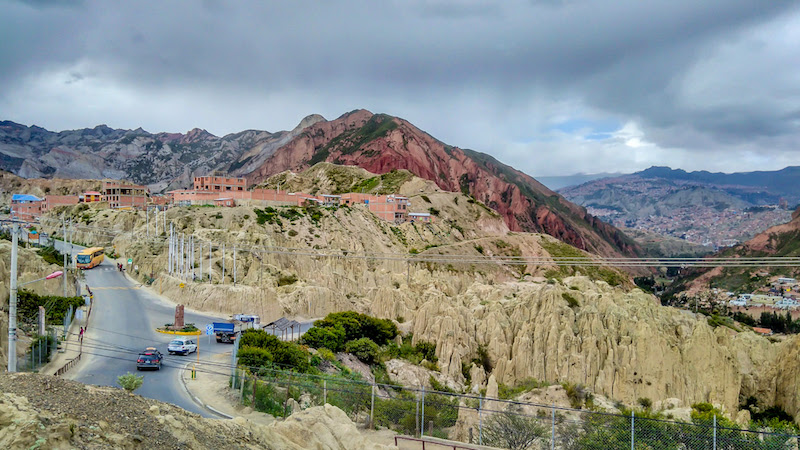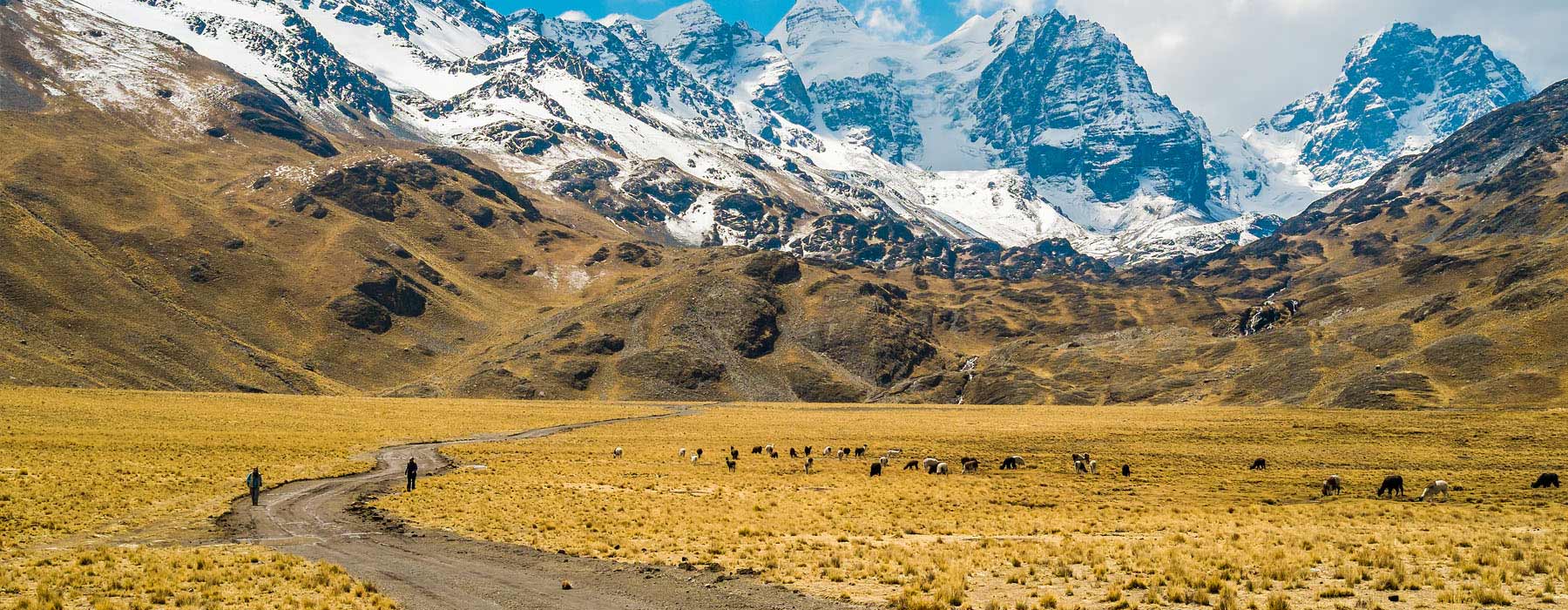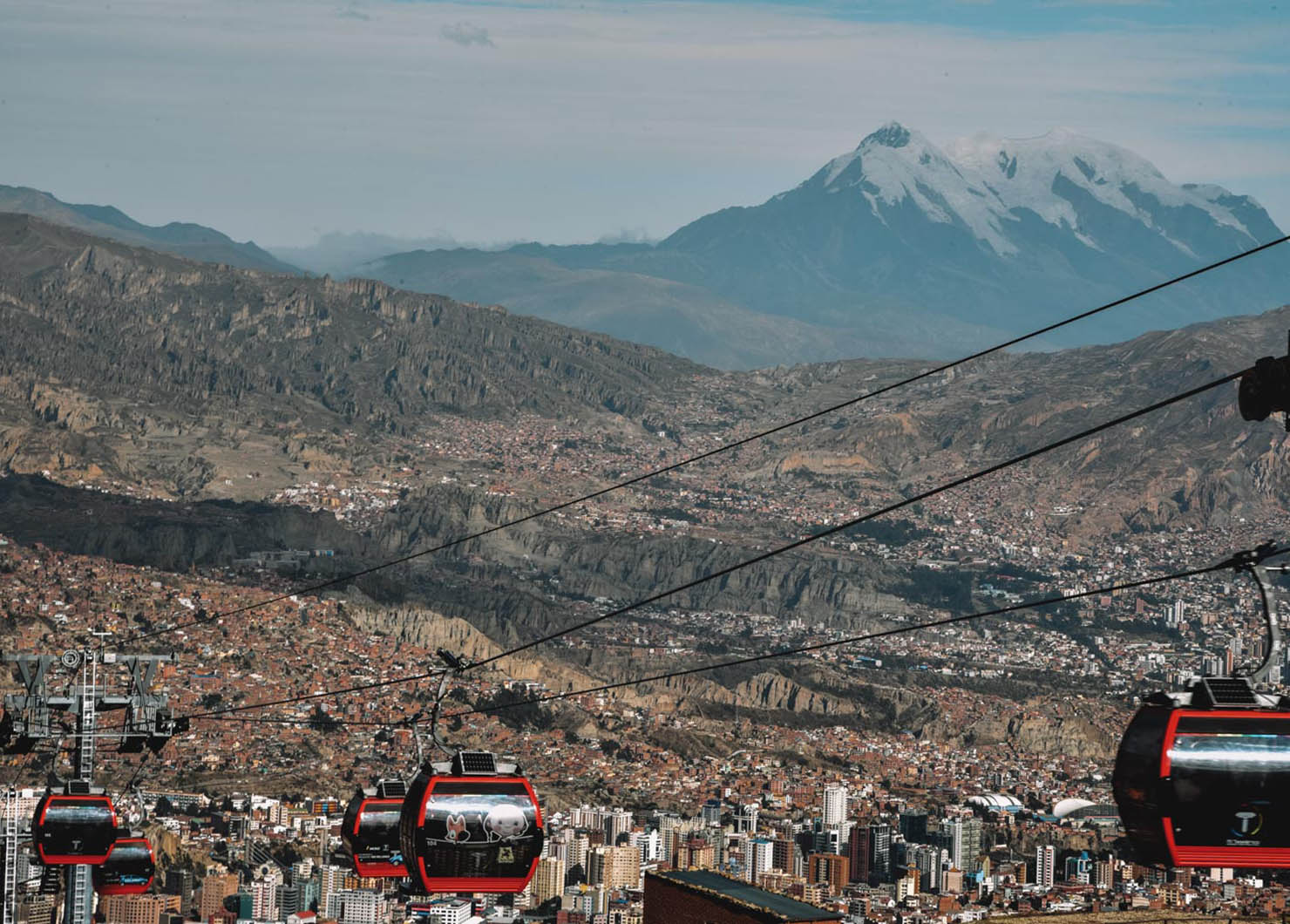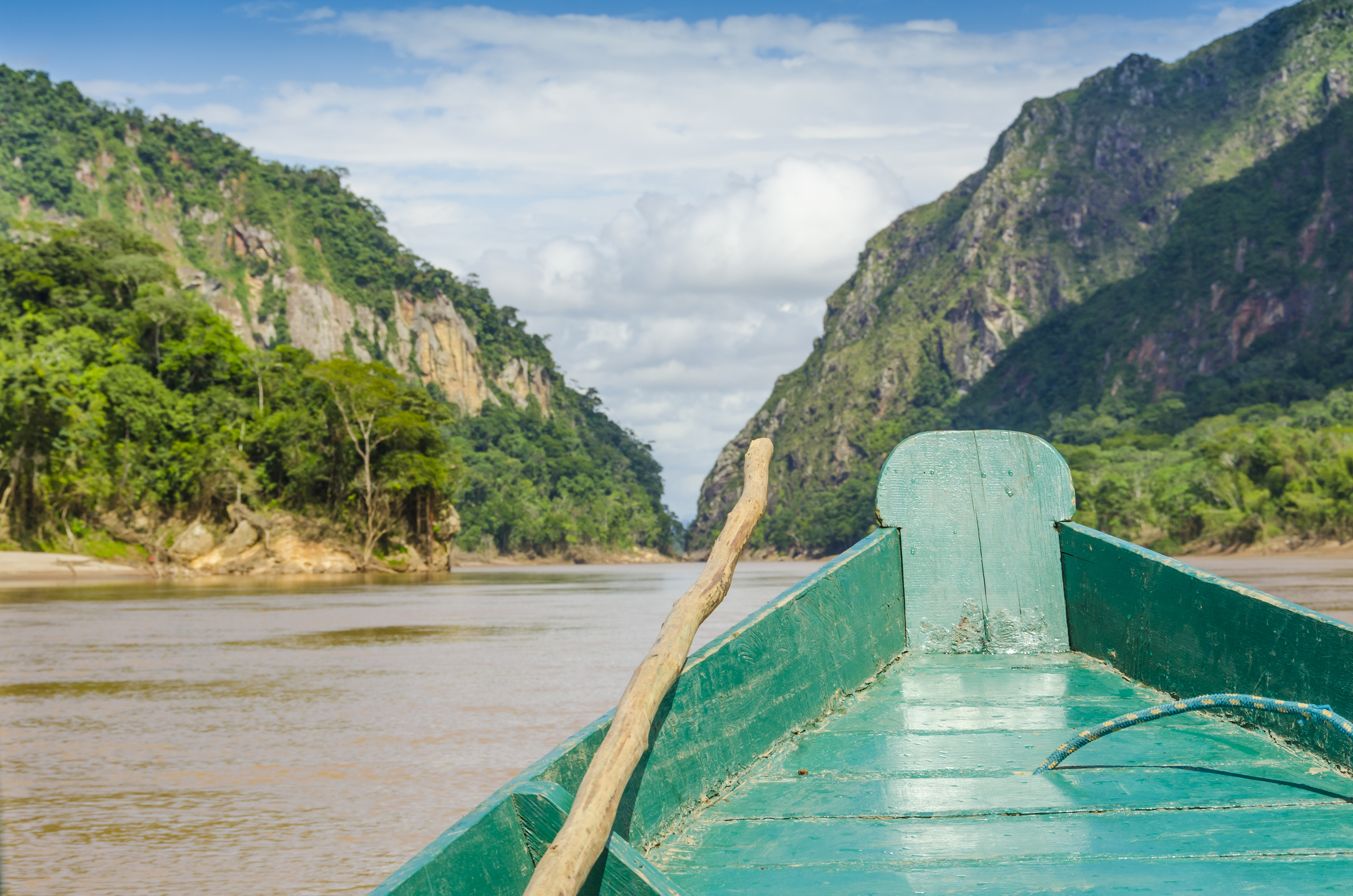A Comprehensive Guide to Exploring Bolivia: Tips for Indian Travellers

Introduction to Bolivia
Overview of Bolivia
Bolivia, nestled in the heart of South America, is a country rich in culture, history, and natural beauty. From the bustling markets of La Paz to the serene shores of Lake Titicaca, Bolivia offers a diverse array of experiences for travellers to enjoy. Here's a brief overview of what makes Bolivia a unique and captivating destination:
- Known for its indigenous culture, Bolivia boasts a vibrant mix of traditions from its Quechua and Aymara heritage.
- The country's colonial past is evident in the charming streets of cities like Sucre and Potosi, where history comes alive with every step.
- Bolivia's natural landscapes are truly breathtaking, with the towering peaks of the Andes mountains and the otherworldly salt flats of Salar de Uyuni.
Geography and Climate of Bolivia
Bolivia's geography is as varied as it is stunning, offering everything from lush rainforests to high-altitude deserts. The country is landlocked and bordered by five other South American nations, which influences its climate and terrain. Here's a glimpse at Bolivia's geography and climate:
- The Andes mountains run through the western part of the country, offering spectacular views and challenging trekking opportunities.
- The Amazon basin covers a significant portion of Bolivia's territory, providing a haven for diverse wildlife and lush vegetation.
- Bolivia's climate varies from region to region, with the highlands experiencing cooler temperatures and the lowlands being more tropical and humid.
In the upcoming sections, we will delve deeper into the culture, unique wildlife, travel tips, and more that make Bolivia a must-visit destination for adventurers and nature enthusiasts alike.

Culture and Customs in Bolivia
Traditional Bolivian Cuisine
When exploring Bolivia, you can't miss out on the culinary delights that are deeply rooted in the country's culture. Bolivian cuisine reflects a fusion of Indigenous flavours and Spanish influences, creating a unique and flavorful dining experience. Here are some traditional Bolivian dishes to tantalize your taste buds:
- Salteñas: These savoury pastries filled with meat, vegetables, and a slightly spicy broth are a popular snack enjoyed throughout Bolivia.
- Silpancho: A hearty dish consisting of breaded and fried beef cutlets served over rice and topped with a fried egg and sliced potatoes.
- Quinoa Soup: A nutritious and comforting soup made with quinoa, vegetables, and sometimes meat, showcasing Bolivia's love for this ancient grain.
Festivals and Celebrations in Bolivia
Bolivians take great pride in their vibrant festivals and celebrations, which offer a glimpse into the rich tapestry of their culture and heritage. From colourful parades to traditional dances, these events bring communities together in joyous revelry. Here are some of the most renowned festivals in Bolivia:
- Carnival de Oruro: A UNESCO-recognized festival featuring elaborate costumes, music, and dance professionals dedicated to the Virgin of Candelaria.
- Diablada: Celebrated in Oruro, this festival combines indigenous and Catholic traditions, with dancers dressed as demons and angels parading through the streets.
- Inti Raymi: A celebration of the winter solstice in the Andean region, showcasing ancient rituals and ceremonies to honour the sun god.
By immersing yourself in Bolivia's cuisine and joining in its festive traditions, you'll gain a deeper appreciation of the country's rich cultural tapestry.
Top Destinations in Bolivia
La Paz and the Andes Mountains
La Paz, the capital of Bolivia, is a bustling city nestled in a high-altitude valley surrounded by the majestic Andes Mountains. Exploring this vibrant metropolis offers a glimpse into Bolivia's urban life and cultural heritage. Here's what you can explore in La Paz and the Andes Mountains:
- Wander through Witches Market: Experience the vibrant chaos of this market, where you can find traditional herbs, potions, and llama fetuses believed to bring good luck.
- Take a Cable Car Ride: Marvel at the panoramic views of the city and surrounding mountains from the world's highest urban cable car network.
- Explore Valle de la Luna: Visit this lunar-like landscape just outside La Paz, where eroded clay formations create a surreal and otherworldly atmosphere.
Salar de Uyuni and the Salt Flats
Salar de Uyuni is one of Bolivia's most iconic destinations, renowned for its stunning salt flats that stretch as far as the eye can see. This natural wonder offers a surreal experience that is unlike anywhere else on Earth. Here's what makes Salar de Uyuni a must-visit:
- Mirror Effect: During the rainy season, the salt flats transform into a vast mirror, reflecting the sky and creating a breathtaking illusion of infinity.
- Incahuasi Island: Explore this rocky island in the middle of the salt flats, home to giant cacti and offering panoramic views of the surrounding expanse.
- Stargazing: At night, the clear skies above Salar de Uyuni provide an unparalleled opportunity for stargazing as the Milky Way stretches overhead in all its celestial glory.
Whether you're exploring the urban charm of La Paz or marvelling at the surreal beauty of Salar de Uyuni, Bolivia's top destinations promise unforgettable experiences for intrepid travellers.

Travel Tips for Indian Travelers
Visa and Entry Requirements
For Indian travellers planning a trip to Bolivia, understanding the visa and entry requirements is essential to ensure a smooth and hassle-free journey. Here are some key points to keep in mind:
- Visa: Indian passport holders are required to obtain a visa before travelling to Bolivia. It is advisable to check with the nearest Bolivian embassy or consulate for the most up-to-date visa information.
- Entry Requirements: In addition to a visa, travellers may need to provide proof of onward travel, accommodation reservations, and sufficient funds for their stay upon arrival in Bolivia.
- Yellow Fever Vaccination: It is recommended to get a yellow fever vaccination before travelling to Bolivia, especially if you plan to visit certain regions with a risk of transmission.
Safety and Health Tips
Ensuring your safety and well-being during your travels in Bolivia is paramount. Here are some safety and health tips specifically tailored for Indian travellers:
- Altitude Sickness: As many parts of Bolivia are at high altitudes, including La Paz and Salar de Uyuni, acclimatize slowly to prevent altitude sickness. Stay hydrated and avoid strenuous activity.
- Travel Insurance: It's advisable to purchase comprehensive travel insurance that covers medical expenses, trip cancellations, and emergency evacuations to safeguard against any unforeseen circumstances.
- Local Customs: Familiarize yourself with local customs and traditions to show respect for the culture and avoid inadvertently offending anyone.
By being well-prepared with the necessary documentation, staying mindful of your health and safety, and respecting the local customs, Indian travellers can embark on an enriching journey through the enchanting landscapes of Bolivia.

Transportation in Bolivia
Public Transportation Options
Getting around in Bolivia can be an adventure in itself, with a variety of transportation options available to suit different preferences and budgets. Exploring the diverse landscapes and bustling cities of Bolivia can be done using the following public transportation options:
- Buses: Buses are the most common mode of public transport in Bolivia, offering both short and long-distance routes. Be prepared for crowded conditions and varying levels of comfort depending on the bus type.
- Minivans (Micros): These small vans operate on fixed routes within cities and are a convenient way to navigate urban areas quickly and affordably.
- Trufis: Shared taxis known as trufis provide a flexible and relatively inexpensive way to travel within cities, with routes displayed on the windshield indicating their destination.
Renting a Car in Bolivia
For travellers who prefer the freedom and flexibility of driving themselves, renting a car in Bolivia can be a convenient option to explore the country at your own pace. Here are some tips to consider when renting a car in Bolivia:
- Driving Conditions: Be prepared for varying road conditions, from well-maintained highways to rough and unpaved roads in rural areas. A 4x4 vehicle is recommended for certain regions.
- International Driver's Permit: Ensure you have a valid International Driver's Permit along with your home country's driver's license to legally drive in Bolivia.
- Insurance: It's important to purchase comprehensive insurance coverage when renting a car in Bolivia to protect against unforeseen accidents or damages.
Whether you opt for the adventurous experience of public transportation or the convenience of renting a car, Bolivia offers diverse transportation options to cater to the needs of every traveller.
Accommodation Options in Bolivia
Hotels and Hostels
From luxurious hotels to budget-friendly hostels, Bolivia offers a wide range of accommodation options to cater to the diverse needs and preferences of travellers. Whether you seek comfort and amenities or a more immersive local experience, there is something for everyone in Bolivia's hotel and hostel scene:
- Boutique Hotels: Discover charming boutique hotels in cities like Sucre and La Paz, offering personalized service and unique decor that reflects the local culture.
- Budget Hostels: For backpackers and budget-conscious travellers, hostels are a great way to meet fellow adventurers and save on accommodation costs while exploring Bolivia.
- Eco-Friendly Hotels: Some hotels in Bolivia focus on sustainable practices and eco-friendly initiatives, providing environmentally conscious travellers with a guilt-free stay.
Eco-Lodges and Homestays
Immerse yourself in Bolivian culture and nature by opting for eco-lodges and homestays that offer a more authentic and environmentally friendly experience. Staying in eco-lodges and homestays allows visitors to connect with local communities and the natural surroundings on a deeper level:
- Amazon Rainforest Lodges: Experience the wonders of the Amazon rainforest by staying in eco-friendly lodges that offer guided nature tours and sustainable practices to preserve the delicate ecosystem.
- Community Homestays: Live like a local by staying with Bolivian families in rural villages, participating in daily activities, and gaining insight into traditional customs and ways of life.
- Off-the-Grid Retreats: Disconnect from the noise of modern life and reconnect with nature at off-the-grid retreats that provide a peaceful and serene environment to rejuvenate mind, body, and spirit.
Choosing the right accommodation in Bolivia can enhance your travel experience, offering comfort, cultural immersion, and a chance to support sustainable tourism practices.

Exploring Bolivian Wildlife
Unique Wildlife Species in Bolivia
Bolivia's diverse ecosystems support a rich variety of wildlife, making it a paradise for nature lovers and wildlife enthusiasts. From the Amazon rainforest to the high Andean plains, Bolivia is home to unique and fascinating wildlife species that thrive in these different habitats. Here are some of the remarkable wildlife you may encounter in Bolivia:
- Giant River Otters: Found in the rivers and lakes of the Amazon basin, these charismatic creatures are the largest otter species in the world and are known for their playful behaviour.
- Andean Spectacled Bear: Native to the Andean region, this elusive bear is the only bear species in South America and is recognized by the distinctive markings around its eyes.
- Pink River Dolphins: In the rivers of the Amazon, visitors may spot the enchanting pink river dolphins, known for their pink colouration and friendly nature.
Best National Parks for Wildlife
Exploring Bolivia's national parks is a fantastic way to witness the country's incredible biodiversity up close and personal. National parks in Bolivia offer a chance to observe wildlife in their natural habitats and immerse yourself in the beauty of these pristine landscapes. Here are some of the best national parks in Bolivia for wildlife viewing:
- Madidi National Park: Located in the Amazon rainforest, Madidi is one of the most biodiverse areas on the planet, home to jaguars, macaws, and a myriad of other wildlife species.
- Sajama National Park: In the Andean highlands, Sajama National Park is a haven for vicuñas, Andean flamingos, and the majestic Andean condor.
- Amboró National Park: This park spans from the Amazon to the Chaco region, offering a wide range of ecosystems and wildlife, including tapirs, ocelots, and sloths.
By exploring Bolivia's wildlife-rich national parks and encountering its unique animal species, you're sure to create unforgettable memories and gain a deeper appreciation for the natural wonders of this beautiful country.
Shopping and Souvenirs in Bolivia
Traditional Handicrafts
Bolivia is a treasure trove of traditional handicrafts, offering visitors the opportunity to take home unique and authentic souvenirs that showcase the country's rich cultural heritage. Handicrafts in Bolivia are crafted with skill and artistry, reflecting the country's diverse indigenous traditions and artistic flair. Here are some traditional handicrafts you may want to consider bringing back as souvenirs from Bolivia:
- Alpaca Wool Products: Soft and luxurious, alpaca wool is used to create a variety of products, including sweaters, scarves, and blankets, which are known for their quality and warmth.
- Pottery: Bolivian pottery comes in vibrant colours and intricate designs, showcasing the creativity and craftsmanship of local artisans.
- Textiles: From intricate weavings to colourful tapestries, Bolivian textiles are a stunning display of traditional patterns and techniques.
Markets and Shopping Districts
Exploring markets and shopping districts in Bolivia is an immersive cultural experience where you can haggle with vendors, sample local delicacies, and discover hidden gems to bring back home. Whether you're looking for souvenirs or simply soaking in the vibrant atmosphere, Bolivia's markets and shopping districts offer a taste of authentic Bolivian life. Here are some must-visit markets and shopping areas in Bolivia:
- Witches Market (Mercado de las Brujas), La Paz: Known for its colourful array of traditional Andean products, from herbal remedies to llama fetuses, this market is a unique cultural experience.
- 16th of July Market (Mercado 16 de Julio), El Alto: This bustling market in El Alto offers a wide range of goods, including textiles, electronics, and street food, providing a glimpse into everyday Bolivian life.
- San Francisco Church Market, La Paz: Located near the San Francisco Church, this market is a great place to find handicrafts, textiles, and souvenirs in a historical setting.
By exploring Bolivia's markets and indulging in traditional handicrafts, you can bring a piece of Bolivia's vibrant culture and artistry back home with you as lasting memories of your trip.
Language and Communication in Bolivia
Common Phrases in Spanish
While exploring Bolivia, having a basic understanding of Spanish can enhance your travel experience and help you connect with the locals. Spanish is the official language of Bolivia, and knowing some common phrases can go a long way in communication and cultural exchange. Here are some essential phrases in Spanish that can be handy during your adventures in Bolivia:
- Hola - Hello
- Gracias - Thank you
- Por favor - Please
- ¿Cuánto cuesta? - How much does it cost?
- ¿Dónde está...? - Where is...?
- Delicioso - Delicious
- ¡Salud! - Cheers!
Learning and using these basic phrases can help you navigate daily interactions, show respect for the local language and culture, and possibly make new friends along the way.
Language Schools and Classes
For those interested in diving deeper into the Spanish language and enhancing their communication skills during their time in Bolivia, language schools and classes offer structured learning opportunities. Whether you're a beginner looking to grasp the basics or an advanced learner aiming to refine your proficiency, attending language schools and classes can be a rewarding experience. Here's what you can expect from language schools in Bolivia:
- Customized Courses: Language schools in Bolivia often offer tailored courses to accommodate different proficiency levels and learning goals.
- Cultural Immersion: In addition to language lessons, some schools provide cultural immersion activities such as cooking classes, city tours, and social events to enhance your overall experience.
- Experienced Instructors: Learning from experienced and native-speaking instructors can significantly boost your language skills and confidence in Spanish.
By enrolling in language schools or classes, you not only improve your ability to communicate effectively but also deepen your cultural understanding and connection with the local community during your travels in Bolivia.
Conclusion and Final Tips
Summary of Key Points
Embarking on a journey to Bolivia opens up a world of cultural richness, natural wonders, and unforgettable experiences. From exploring the bustling markets of La Paz to marvelling at the surreal beauty of Salar de Uyuni, Bolivia offers a diverse tapestry of adventures for travellers. Here's a brief summary of key points to remember when planning your trip to Bolivia:
- Culture and Cuisine: Indulge in traditional Bolivian cuisine and immerse yourself in vibrant festivals and celebrations to experience the heart of Bolivia's culture.
- Exploration: Explore top destinations such as La Paz, the Andes Mountains, and Salar de Uyuni for a taste of Bolivia's stunning landscapes and unique attractions.
- Travel Tips: Be aware of visa requirements, prioritize safety and health, and choose transportation and accommodation options that suit your preferences.
- Wildlife and Shopping: Discover Bolivia's diverse wildlife in national parks and bring back traditional handicrafts as souvenirs to cherish memories of your trip.
- Language and Communication: Learn common Spanish phrases to enhance your interactions, and consider taking language classes for a deeper cultural immersion.
Resources for Further Exploration
To delve deeper into planning your Bolivian adventure and make the most of your time in this captivating country, here are some resources for further exploration:
- Lonely Planet Bolivia Travel Guide: A comprehensive guidebook offering insights into Bolivia's culture, attractions, and practical travel tips.
- Bolivia Tourism Official Website: Visit the official tourism website of Bolivia for updated information on destinations, events, and travel requirements.
- Online Language Learning Platforms: Explore online Spanish language courses to brush up on your language skills before your trip to Bolivia.
By combining cultural experiences, natural wonders, and practical travel tips, your journey to Bolivia is sure to be filled with unforgettable moments and meaningful connections. Embrace the beauty of Bolivia and create memories to last a lifetime.
